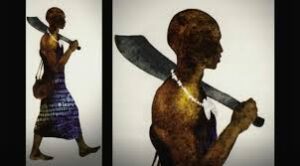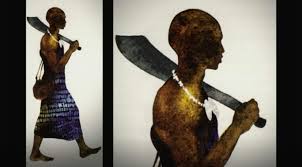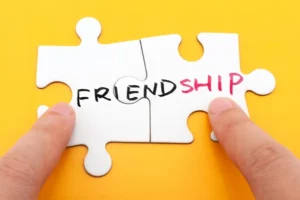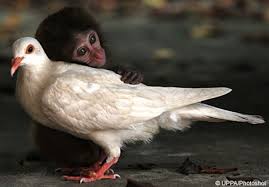
In a world where labeling people as inherently good or bad may seem oversimplified, the concept of Ezigbo Mmadu holds a fascinating perspective. The Igbo word loosely translates to “good person”. You may argue that categorizing individuals as simply good or bad is an oversimplification, and indeed, there are numerous philosophical and religious arguments against such a dichotomy. Just yesterday, I had an engaging conversation where I was cautioned about the limitations and potential pitfalls of viewing people through such a simplistic dichotomy.
Many philosophical and religious perspectives have scrutinized the notion of a definitive good or bad person. For instance, the dark history of Nazi ideology epitomizes the grave consequences of rigidly dividing people into categories of good and bad. Moreover, eminent philosophers like G.E. Moore have contended that the concept of good cannot even be defined, emphasizing its elusive nature. Can an action be good if it benefits one person but harms another? Christian theology believes that only God embodies ultimate goodness, while humanity carries inherent flaws. These perspectives further reinforce the argument that the designation of a person as good or bad is overly reductionist.
Despite these rational arguments against simplistic definitions, I go ahead to write about my notion of Ezigbo Mmadu. Like the curious researcher I was trained to be, I did a quick review of the literature—well, not exactly a traditional literature search in this case, but simply a Google search to see what has already been written on this topic. During my search, I stumbled upon a fascinating philosophical article by Professor Christopher Agulanna from the University of Ibadan. This article went beyond my understanding and added a deeper richness to the concept. It traced the development of Ezigbo Mmadu among the Igbo people over time, from its origins in pre-colonial times to its relevance during the Civil War and its present-day significance.
My perspective of an Ezigbo mmadu focuses on the “good quality human” within the realm of friendships. Why focus on friendships, you may ask? Well, when it comes to our closest relationships, be it with our mothers, brothers, romantic partners, or husbands, there is already an inherent expectation of goodness and honor. Your mother, for instance, is naturally expected to be good and honorable towards you. Even the most dishonest person would find it difficult to be dishonest with their own child or sibling. The familial bond inherently places expectations of being an Ezigbo mmadu on each other. It is within the realm of friendships that the concept of an Ezigbo mmadu truly shines. Unlike family or romantic relationships, friendships are not bound by blood or societal obligations. One can argue that this freedom of choice makes a friend’s integrity even more meaningful and powerful.
In the novel “Things Fall Apart” by Chinua Achebe, we encounter a character named Obierika, who exemplifies the qualities of an exceptional friend and confidante to the protagonist, Okonkwo. They didn’t always agree on everything, but we see in Obierika an upstanding, wise moralist who stood by his friend till the bitter end, even when it was an undignified ending. Another prominent example of an Ezigbo Mmadu in the realm of friendships is found in the biblical character Jonathan. He loved his friend David to the point of choosing him over his father’s evil intentions. Jonathan exemplifies not only a faithful friend but also a moralist who possesses the discernment to see through his father’s jealousy.
A more mainstream representation of an Ezigbo Mmadu can be seen in Leonard from The Big Bang Theory. Despite Sheldon’s selfish and often undeserving behavior, Leonard remains steadfast and loyal in their friendship. I selected Leonard from a pool of worthy contenders (yes, I thought of Lord Ned Stark from the Game of Thrones), mainly because of his deep investment in Sheldon’s dreams and aspirations and the extent to which he went to help make them a reality. Some may argue that he was merely a pushover or didn’t have a choice but to remain friends with Sheldon, but I don’t believe that to be the case. He could have easily ended the friendship at any time, especially considering he had other friends who seemed “more deserving.” Okay, so how did we end up reviewing sitcoms here?
Back to my topic, how can you identify an Ezigbo Mmadu in your life, besides the exceptions I mentioned earlier? One unmistakable trait is their genuine investment in your success. And it’s not just for show; they actively remind you of your dreams because they truly listened when you passionately spoke about them. They walk with you, supporting and guiding you towards achieving those dreams. There’s no hidden envy or backstabbing from them. They are regular friends, but what sets them apart as Ezigbo Mmadus is that you become a better version of yourself when you are around them. They demonstrate moral uprightness not only towards you and their own kin but towards everyone else as well. This inherent goodness within them serves as your moral compass and enables them to be the remarkable Ezigbo Mmadu they are.
Do you have Ezigbo Mmadus in your life? If so, cherish them dearly, because they are the ones who make this unpredictable and challenging journey called life a little more bearable.
Don’t have an Ezigbo Mmadu? Why not strive to become one yourself?




Interesting read. I am deeply taken by how articulate this is. I hope to acquaint myself with more of your work. Ezigbo’m madu is definitely someone who genuinely invests in your success. They remind you of your dreams and support you through it all. Thanks for sharing.
Thank you for your kind words 🙂